Film Name:奇門遁甲 / The Thousand Faces of Dunjia
Before deciding to go to the theater, I knew I was heading into a bad movie… Usually in such situations, I’d steer clear, but drawn by the reputations of “Old Monster” and “Eight Master,” I hesitated for a moment before resolving to take the plunge and see it for myself.
I was wrong. So very wrong.
Yuen Woo-ping is a world-class martial arts choreographer, but Eight Master, you really aren’t cut out for directing. Some might even recall the dread induced by your “True Legend” and “Crouching Tiger, Hidden Dragon: Sword of Destiny”…
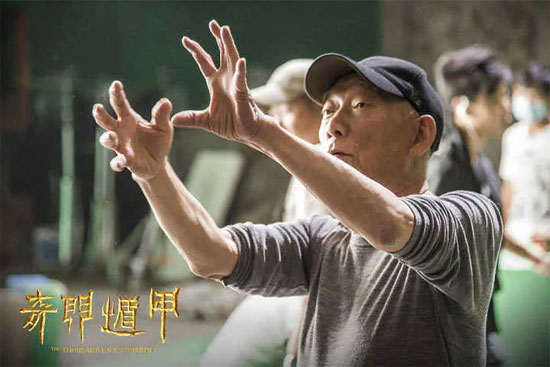
Truthfully, when the opening scene showed a banner in the center of the frame proclaiming “Eighth Master: The World’s Greatest,” I smiled knowingly—yet a sense of foreboding had already begun to creep in…
[Just a heads-up: Spoilers ahead.]
In theory, commercial fantasy/action films should find their stylistic positioning more easily. Take the Marvel Cinematic Universe, for instance: it knows when to be serious and when to be silly. Once the main tone is set, other elements can be gradually added. This approach makes both filmmaking and viewing much smoother.
Yet “The Thousand Faces of Dunjia” clearly follows many of the same tired paths as countless mediocre domestic films—and in this regard, it even falls short of some of those mediocre films. Because by the time you finish watching it, you still can’t figure out what face it truly intends to present.
At first, it starts as a period sci-fi film.
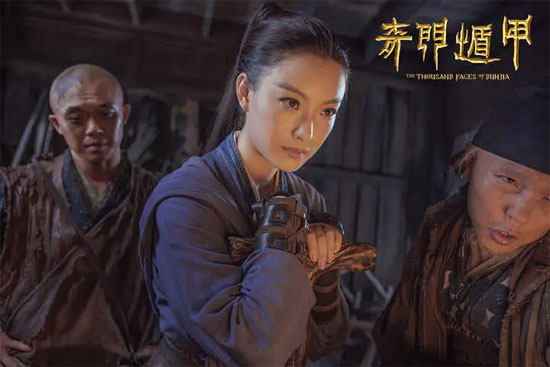
The disliked constable Dao Yichang stumbled into dealings with the mysterious Fog-Hiding Sect, witnessed the Iron Dragonfly’s demon-hunting in action, and then had his memory erased—whoa, this is practically an ancient fantasy version of ” Men in Black.” The Seven Mist Hide Disciples and the two major demons all seemed plausible enough. If it had continued down this path, it would have been passable entertainment.
But when Zhuge Qingyun came out to find the sect leader, it suddenly devolved into pure third-rate comedy.
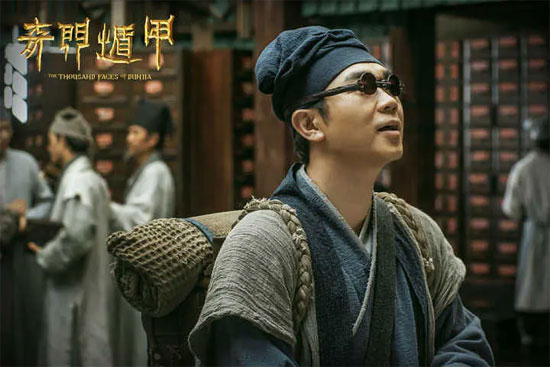
With Da Peng’s almost charlatan-like appearance and backstory, combined with Zhou Dongyu’s scatterbrained, adorably clueless personality, and their subsequent antics back at the Mist-Hiding Sect, it’s undeniably a straight-up comedy route. Yet, this humor mostly stays superficial, failing to integrate organically into the story. So while it’s laughable, it mostly induces an uncomfortable, awkward chuckle.
Yet amidst all this, the plot involving the Divine Machine, extraterrestrial artifacts, the Five Great Sect Leaders, and Boss Wu Bai still unfolds like a conventional wuxia tale.
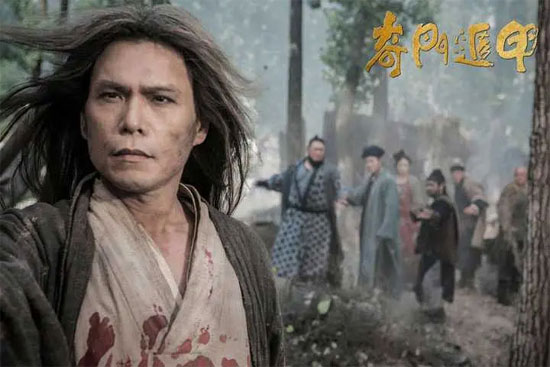
This is likely where Director Bao excels most—at least he understands the formula.
But it seems he only memorized the basic formula without grasping how to execute it cohesively—each pivotal moment is treated with solemnity: celestial demons unleashing chaos, the Red-Eyed and White Tiger factions acting independently, the Five Great Sect Leaders succumbing to madness, the mysterious sect leader fueling controversy, the Mist-Hidden heir ridding the world of evil… Yet the threads connecting these events are a complete mess. One moment the action is in Kaifeng, the next in Luoyang. To advance the plot or shift scenes, the author often throws out flimsy excuses as if they were nothing—so slapdash it’s laughable.
Then there’s Dao Yizhang—a character who grows increasingly incongruous the more you watch. Calling him a demoted male lead doesn’t quite fit; he feels more like a miscast, downtrodden (serendipitous) secondary male lead.
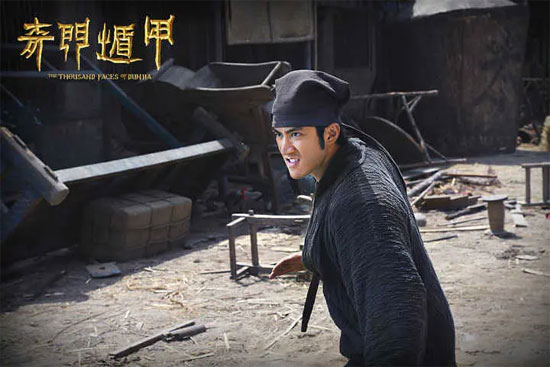
Honestly, he’s got a bit of street smarts mixed with naivety, a heart of gold, and unwavering loyalty to his cause. He loses limbs saving a beauty, then gets reborn from a skeleton by the sect leader Xiao Yuan, unexpectedly gaining supreme magical power—wow, that’s straight-up Qidian-style protagonist treatment! Just when you expect him to unleash his full might, the sect leader sacrifices himself to save the top three leaders. Suddenly, all four gain divine power and team up to fight the boss. After a while, they can’t win, so the sect leader resurrects as a demonic form and instantly kills the boss… What the hell is going on here?
Even the Eighth Master must’ve felt the boss fight was too slapdash, because at the story’s end, he suddenly declared: “Those two were just minions! The real big boss hasn’t even appeared yet!”
Please, with this level of quality, Master Ba, you really shouldn’t plan “The Thousand Faces of Dunjia 2″…
Speaking of which, besides Master Ba, “The Thousand Faces of Dunjia” has another, even more renowned name attached to it: Tsui Hark.
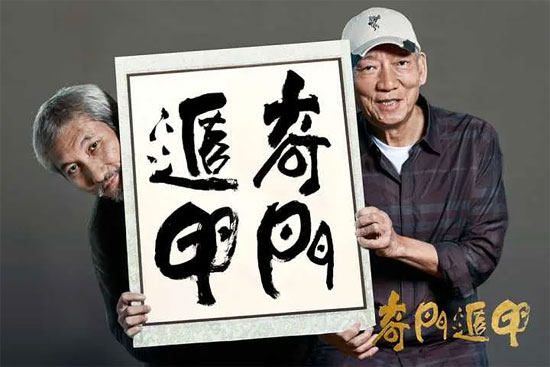
During the initial promotional phase, everyone—whether intentionally or not—kept pushing producer and screenwriter Tsui Hark, the “Old Monster,” to the forefront. After all, Old Monster has maintained a solid reputation over the years, and his recent films haven’t exactly tarnished his brand… But Tsui Hark is a “mad genius.” His talents lie more in the bizarre, the novel, and the niche; storytelling isn’t exactly his forte. Even if his contributions to the film were greater than they actually were, it wouldn’t change much—especially since the director is Yuen Woo-ping.
Of course, The Thousand Faces of Dunjia isn’t without merit. I quite like its foundational concept—a wildly imaginative fantasy world with action sequences blending reality and illusion—which bears the unmistakable stamp of Tsui Hark and Yuen Woo-ping’s signature style. This remains their most commendable strength.
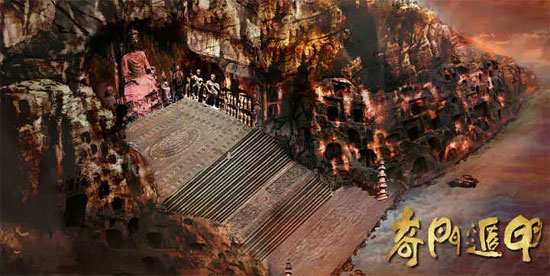
Take several scenes, for instance: the Longmen Grottoes, the Underworld Manor, and others all have commendable moments. The film genuinely captures (most of) the feel of the concept art. In terms of “visuals” and “framework,” I still quite like The Thousand Faces of Dunjia.
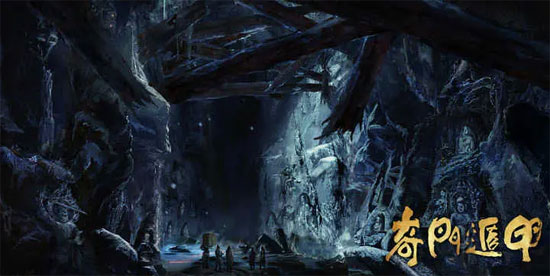
Alas… It’s like a top-tier carpenter in the village, who often assists others as a laborer in building houses. This time, he decides to take the lead on his own project, recruiting another master mason from the village. He thinks: “I can carve intricate patterns into the beams, and he can lay bricks to make walls exceptionally sturdy and beautiful. Together, we should be unstoppable, right?”
But the foundation was poorly laid, and the design was a mess. Beyond the two craftsmen contributing their specialties, every other step was completed based on the carpenter’s half-baked knowledge. In the end, the house was built, but it was nothing more than a facade—maybe pretty to look at, but certainly not sturdy.
Please specify:Anime Phone Cases » The Thousand Faces of Dunjia 奇門遁甲 2017 Film Review: Eighth Master, I beg you to spare me…